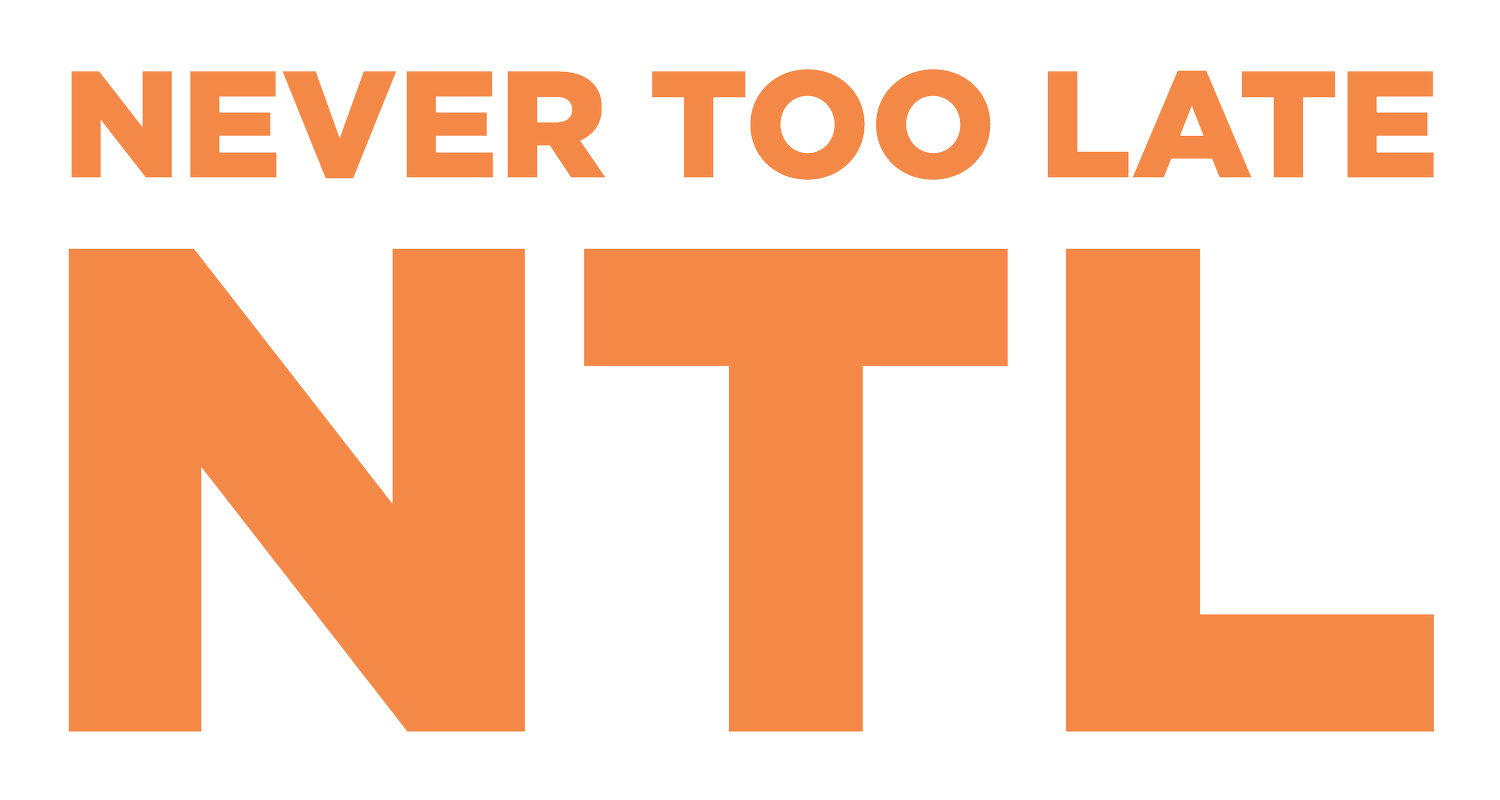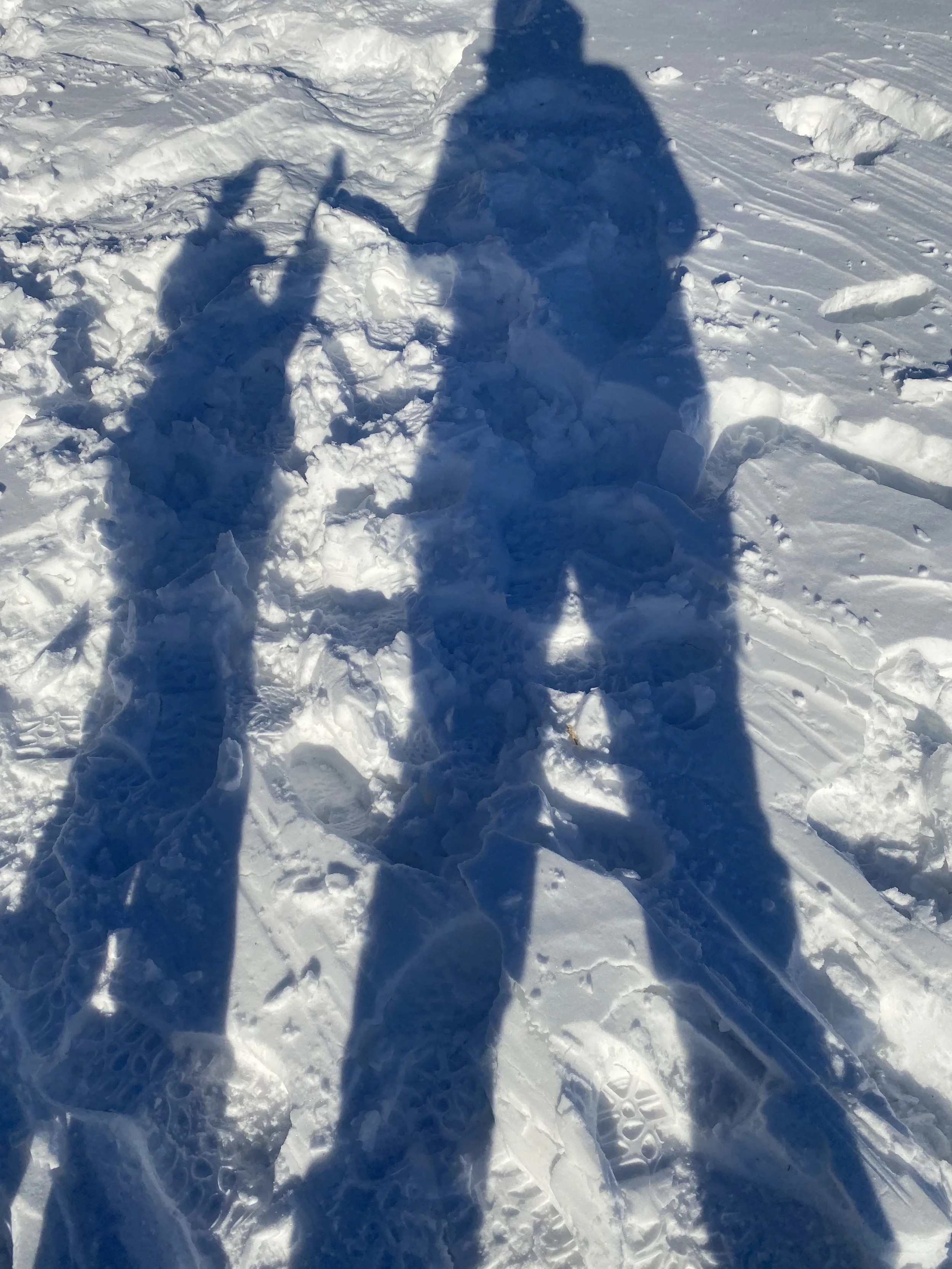
“No person in and from care should have to accept that their relationships come with expiry dates”.
– Chloe, lived expert of child welfare
Getting Started
Welcome to Never Too Late (NTL), we’re so glad you’re here! We are a community of people who are passionate about permanency for Living Experts of the child welfare system. We work collaboratively with Humans & Caregivers, Service Providers and Living Experts to create opportunities for enduring lifelong connections.
Learn more about what is available at Never Too Late (NTL)…
-
*Human is the term Never Too Late (NTL) uses for the role of caregiver/parent. It comes from a lived expert of child welfare expressing that along with financial supports and services, someone who ages out of child welfare wants a human being who is not paid to be there in their lives. We use the term to respect that for many people the word family or parents are ones they are not comfortable using for these connections because of past relationships or trauma. Regardless of the words used, Humans are the unpaid, life long, safe, unconditional supportive connections.
-
*Living Expert (or Lived Expert) is the term that Never Too Late (NTL) uses to refer to people of any age who have lived experience within the child welfare system and/or permanency journeys.
Ways to Support
Never Too Late (NTL)
Collaborate
Request an Info Session for your organization
Get in touch to learn more about our offerings
Sustain
Become a Community Sustainer through monthly donations
Make a one-time donation
Connect
Follow us on Social Media
Sign up for our Seasonal Newsletter (sign up form at the bottom of the page)
Trainings & Events
At this time, the majority of our offerings are virtual.

Training for Humans

Service Provider Training
Upcoming
Events

Community Blog & News
Somatic therapist and author, Nadia George, explored what somatic healing truly is—and what it isn’t. Drawing from her professional expertise and lived experience, Nadia demystified the science behind somatic practices, shared real-life examples of what works (and what doesn’t) in the heat of the moment, and guided participants through practical tools they can start using right away.
C has been with Never Too Late (NTL) for almost 6 years! She has been actively involved in community groups and has volunteered her time doing peer-support. At the beginning of 2020, with an imminent pandemic that would see the world change drastically, C met and welcomed a Lived Expert into her home and her life.
Fight, flight, freeze or fawn? The nervous system is often thought of as the body’s control system. It’s responsible for processing information received about the world, triggering responses and regulating bodily functions. Understanding how it functions and the impacts that trauma has on the nervous system can help us select the appropriate tools and strategies for dysregulated moments. Lived Expert facilitator, Wendy, provided an overview of the nervous system in simple terms (and some science-y ones) as well as shared some of their personal tools for managing dysregulation for self and as a Kin Caregiver/Human.
Lived Experts may interact with Service Providers in various roles at organizations providing various services. A comprehensive understanding of the living experience of child welfare systems and permanency journeys can help professionals do their best work. In 2024, we began to build on our work with Service Providers by creating a training and peer-support opportunities. L was part of a group of nine service providers from six different organizations that participated in the Service Provider Training Pilot.
Launching gave us time to reflect on the legacies we are continuing and look to the future with hope of what we can create together.
How can Humans build trust, support their Lived Experts to feel safe, and strengthen their relationships? This panel featured Lived Experts and was moderated by Lived Expert Coordinator Charlene April, to hear directly from Living Experts on what kinds of relationship building approaches would be helpful on permanency journeys.
Never Too Late (NTL) was thrilled to be contacted by CBC for an interview for a follow-up story talking about supports for Lived Experts. Wendy Hayes, who does our communications work and is a Living Expert themselves, spoke to CBC about the importance of having Humans.
Permanency journeys are not linear, and they come with unique challenges and joys. Learning happens at different times and in different ways. Messages we’ve heard many times before may take on new meanings as life changes around us. Join this panel of Humans and Human-to-be as they share about the importance of continually engaging with education opportunities that offer insight into trauma, permanency relationships, mental health and other topics that support Humans in showing up in their connections to Lived Experts.
The Lived Expert Library is a tribute to tenacity, yes—but more importantly, it’s a tribute to talent, to vision, and to the many layers of lived experts that are so often overlooked. It’s a reminder that we are more than what we've survived—we are what we’ve made from it.
In honour of Children and Youth in Care Day, please visit the Lived Expert Library and browse the submissions.
The words we use send value-based messages and inform the way we feel and think about the world. Lived Expert facilitator Wendy, who has worked in Communications for over 10 years, explored the subjectivity of language, identity-based language, and why Never Too Late (NTL) uses unique language such as the term "Human".
In April 2023, Never Too Late (NTL) officially launched as an independent organization and began building on years of foundational work done as a program at the Adoption Council of Ontario. Our inaugural Annual Report shares stories of community strength and tenacity and covers the work that we completed in our first fiscal year October 2023 - September 2024.
Downtown Legal Services in collaboration with the Adult Adoption Working Group is composing a four-part manual, “Unpacking the Family Backpack,” which outlines legal rights and privileges in Ontario that depend on family status.
Part 1 of Difficult Conversations explored foundational groundwork that will empower and equip our relationships with Lived Experts for difficult conversations. Attention was given to the role that boundaries play and finding the “how much” between “yes” and “no” answers.
We celebrated the many successes of our panelist, Lived Experts with FASD! Each of them has made significant strides towards a rich and thriving future with the supports they need. While we can’t share the specifics of their stories here, we can share some of our favorite takeaways with you.
Making Space for Lived Experts brought together a panel of professionals with lived expertise in foster care, adoption, or kinship care. It focused on how to enhance the contributions of those with lived expertise to enhance their involvement in advancing organizational missions, extending beyond traditional keynote speaking roles to more integral, impactful positions.
FASD and Developmental Trauma have real impacts on brain development and executive functioning. There are many things you can do to create an environment that supports those with FASD to grow and thrive.
Loss is a universal experience for young people who come into the child welfare system, it is at the center of the Seven Core Issues. As Humans, it is important to understand how loss impacts attachment, behaviours, and internal working models and learn how to support our Lived Experts in acknowledging and processing loss.




















We all have a “toolbox” of strategies that help us navigate difficult times. Wendy, a Lived Expert shares some of the tools in their toolbox for inspiration.